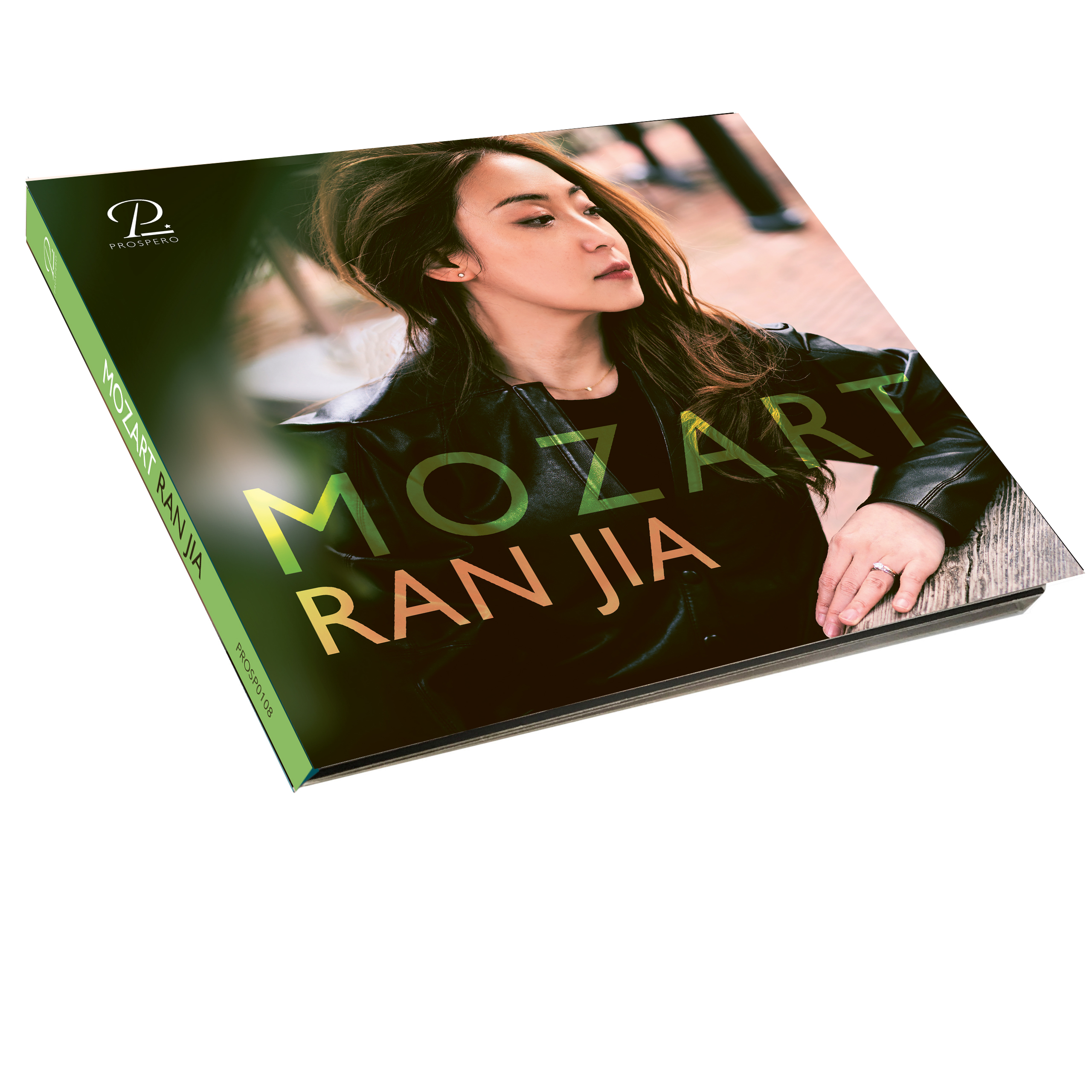Internationale Aufmerksamkeit erlangte die chinesische Pianistin Ran Jia durch ihre außergewöhnlichen Interpretationen des Klavierwerks von Franz Schubert. Tan Dun lobte sie als „Klavierpoetin mit dramatischem Geschick im Musizieren“ und ihre Schubert-Einspielungen wurden in den Rang von berühmten Schubert-Alben von Kempff, Lupu und Richter gestellt. Jetzt veröffentlicht Ran Jia, die 2022 als Professorin an das Shanghai Conservatory of Music berufen wurde, ihr neues Album, das sie Wolfgang Amadeus Mozarts poetischem Sonatenkosmos widmet.
Und sie wählt das Programm mit Bedacht, zeichnet es doch exemplarisch die Entwicklung von Mozarts Sonatenschaffen nach: von der noch von Haydn inspirierten Emanzipation der Sonate zum eigenständigen Konzertstück zur Erschließung neuer Dimensionen des Ausdrucks, die schon auf die Romantik vorausweisen.
Das Programm beginnt mit der frühen B-Dur Sonate KV 281, die zum Teil noch Haydn’sche Züge trägt, und die mit einem Füllhorn an übermütigen Einfällen bisweilen an Szenen einer Opera buffa erinnert.
Mit der „Dürnitz-Sonate“ KV 284 – benannt nach Thaddäus Freiherr von Dürnitz – folgt eine von Mozarts technisch und musikalisch anspruchsvollsten Sonaten, deren Höhepunkt der im Hinblick auf seine variative Fantasie und emotionale Tiefe wohl bedeutendste Variationensatz des Mozart’schen Sonatenkosmos bildet. Bemerkenswert der schier überwältigende Wechsel der Affekte, der von tiefer Melancholie bis zu überschäumendem Witz reicht.
Dass Mozart der Sonatenform in dieser Schaffensphase ganz neue Dimensionen des Ausdrucks erschließt, wird auch in der a-Moll-Sonate KV 310 hörbar – hier herrschen düstere Töne vor, das Leichte und Heitere erscheint nur noch als Kontrastfolie zur vorherrschenden Melancholie und Düsternis. Das Stück überrascht nicht nur durch die Subjektivität seiner Aussage, sondern auch durch seine Nähe zu Konzeptionen der Romantik.
Mit der c-Moll-Fantasie KV 475 beschließt Ran Jia das Album. Mozart stellte das Stück der ersten seiner „Wiener Sonaten“ präludierend voran; aber auch als einzeln stehendes Musikstück ist die Fantasie überaus aufschlussreich: Mozart zieht hier den radikalen Schluss aus seiner zuvor erprobten Idee, die Sonaten mit einem poetischen Gehalt zu verbinden. In Gestalt der Fantasie darf der poetische Gehalt allein die Form bestimmen: Tragödien und Hochgefühle, Schicksalsschläge und glückliche Zufälle – Musik gewordene Lebenserfahrung ist es, die hier erklingt.
The Chinese pianist Ran Jia gained international attention for her extraordinary interpretations of Franz Schubert’s piano works. Tan Dun praised her as a ‘piano poet with dramatic skill in music-making’ and her Schubert recordings were ranked alongside famous Schubert albums by Kempff, Lupu and Richter. Now Ran Jia, who was appointed professor at the Shanghai Conservatory of Music in 2022, is releasing her new album, which she dedicates to Wolfgang Amadeus Mozart’s poetic sonata cosmos.
And she has chosen the programme with care, as it exemplifies the development of Mozart’s sonata oeuvre: from the emancipation of the sonata, still inspired by Haydn, to the independent concert piece and the opening up of new dimensions of expression that point ahead to the Romantic period.
The programme begins with the early B flat major Sonata K. 281, which still has some Haydnian traits and, with its cornucopia of exuberant ideas, is sometimes reminiscent of scenes from an opera buffa.
The ‘Dürnitz Sonata’ K. 284 – named after Thaddäus Freiherr von Dürnitz – is one of Mozart’s most technically and musically demanding sonatas, the climax of which is probably the most important variation movement in Mozart’s sonata cosmos in terms of its variative fantasy and emotional depth. The sheer overwhelming change of emotions, ranging from deep melancholy to exuberant humour, is remarkable.
The fact that Mozart opened up completely new dimensions of expression for the sonata form in this creative phase can also be heard in the Sonata in A minor K. 310 – here, sombre tones predominate, the light and cheerful only appearing as a contrasting foil to the prevailing melancholy and gloom. The piece surprises not only with the subjectivity of its statement, but also with its proximity to Romantic concepts.
Ran Jia concludes the album with the C minor Fantasy K. 475. Mozart prefaced the piece with a prelude to the first of his ‘Viennese Sonatas’; however, the Fantasy is also extremely revealing as a stand-alone piece of music: Mozart draws a radical conclusion here from his previously tried and tested idea of combining the sonatas with poetic content. In the form of the fantasia, the poetic content alone is allowed to determine the form: Tragedies and elation, strokes of fate and happy coincidences – it is life experience turned into music that is heard here.



















